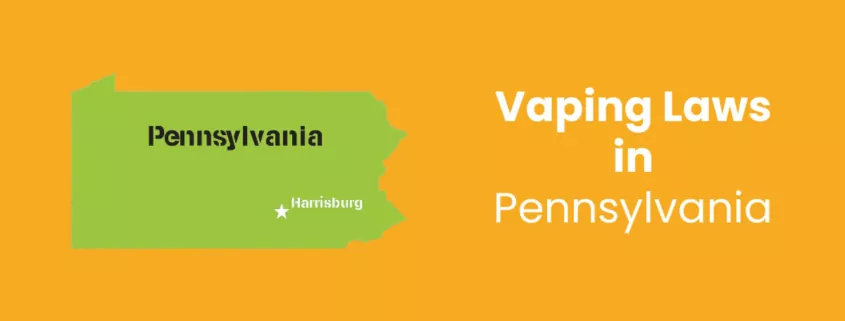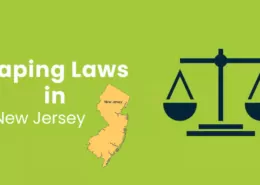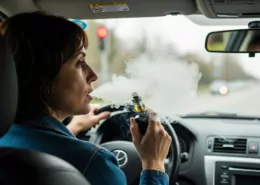Vaping Laws in Pennsylvania: A Comprehensive Guide for 2025
Pennsylvania has established a unique and multifaceted regulatory framework for vaping products, creating a legal landscape that balances public health concerns with business interests and individual freedoms. Unlike many neighboring states that have enacted sweeping statewide bans, Pennsylvania’s approach is characterized by a combination of strict age restrictions, significant taxation, comprehensive retailer licensing, and a notable reliance on local ordinances for public use prohibitions.
This guide provides an in-depth look at Pennsylvania’s current vaping laws, helping consumers, retailers, and manufacturers navigate the complexities of the Keystone State’s rules with clarity and confidence.
The Legal Foundation of Vaping Laws in Pennsylvania
At the core of Pennsylvania’s approach to vaping is a clear legal definition that brings these products under tobacco control measures, alongside unwavering age limits for purchase and possession.
Defining “Electronic Cigarette”
Pennsylvania law defines an “electronic cigarette” as “an electronic oral device, such as one composed of a heating element and battery or electronic circuit, or both, which provides a vapor of nicotine or any other substance”. This broad definition ensures that a wide range of vaping devices and consumables, regardless of nicotine content, fall under the state’s regulatory control.
Minimum Legal Sales Age: Strictly 21, with a Military Exception
Pennsylvania enforces a minimum legal sales age of 21 for all tobacco products, which explicitly includes e-cigarettes, e-liquids, and all related vaping products. This “Tobacco 21” law, which took full effect in July 2020 after being passed in November 2019, aligns the state with federal legislation1. It is illegal for any person to sell, furnish, or purchase on behalf of an individual under 21 any vaping product.
However, Pennsylvania law (18 Pa. Cons. Stat. § 6305) includes a specific exception for active-duty military personnel and honorably discharged veterans, who are permitted to purchase vaping products at the age of 18 with valid military identification.
Retailers are legally mandated to verify the age of any purchaser by checking a valid government-issued photographic identification. Minors attempting to purchase or found in possession of vaping products face summary offenses, which can include fines up to $50 and potential community service or participation in a tobacco use prevention program. These penalties are designed to deter youth access without creating a permanent criminal record for minors.

Where Vaping is Prohibited in Pennsylvania
One of the most significant and often misunderstood aspects of Pennsylvania’s vaping laws is the regulation of public use. Unlike many other states, Pennsylvania’s approach is not uniform and relies heavily on local governance.
The Pennsylvania Clean Indoor Air Act
Pennsylvania’s statewide Clean Indoor Air Act (Act 27 of 2008), which prohibits smoking in most public places and workplaces, has NOT been amended to include vaping products. This means there is no statewide ban that automatically prohibits vaping in all the same places where smoking is banned, such as restaurants, bars, and private workplaces. This makes Pennsylvania more permissive regarding public indoor vaping than many of its neighbors like New York and New Jersey.
However, state law does impose specific location-based prohibitions:
- Schools: Vaping is strictly prohibited in all school buildings, on school vehicles, and on any school property owned, leased, or controlled by a school district, as per 18 Pa. Cons. Stat. § 6306.1.
- Coal Mines: Vaping is banned in all surface and underground areas of coal mines(Part 2 – Usage Restrictions).
Local Ordinances
Because the state’s Clean Indoor Air Act does not cover vaping, local municipalities and counties have the authority to enact their own, often stricter, ordinances. This has created a “patchwork” of regulations across Pennsylvania(Part 2 – Local Ordinances).
- Philadelphia: Has some of the strictest local rules in the state. Philadelphia Code Title 10, Section 10-614 prohibits vaping in all enclosed public places and workplaces, treating it identically to smoking. The city even extends these restrictions to certain outdoor areas, such as within 20 feet of entrances to enclosed areas and in outdoor dining areas.
- Allegheny County: Enacted regulations in March 2017 that treat e-cigarettes the same as traditional cigarettes in most indoor public places, including workplaces, restaurants, and schools. There are some limited exceptions for certain bars and restaurants that meet specific criteria.
In most other municipalities, including major cities like Pittsburgh, Allentown, and Erie, there are no comprehensive local vaping bans beyond the state’s school prohibition. In these areas, vaping in places like restaurants or bars is at the discretion of the business owner. The key takeaway for vapers is to always look for local signage and be aware of specific city or county ordinances.
Ecigator is one of the well-known vape brands spun off from FM Technology Co., Ltd, it’s an ISO-certified disposable vape manufacturer for OEMs, ODMs, and OBM since 2010. The founder team comes from top firms with more than 10 years of experience in the vaping industry and has devoted thousands of hours to providing users with a better and better experience.
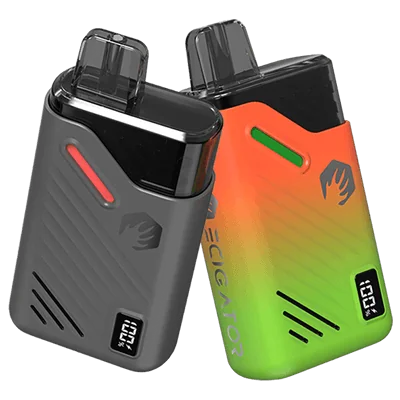
18K Disposable Pod Kit
Disposable Pod Kit – 18ml changeable pod with 650mAh rechargeable battery.
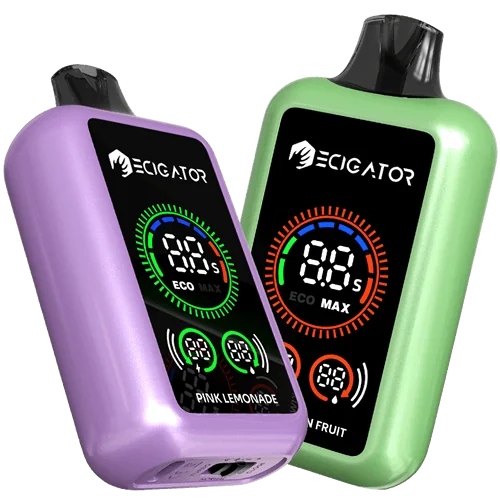
20K with Large Screen
20000 Puffs Disposable Vape with large screen. Normal and Boost working modes.
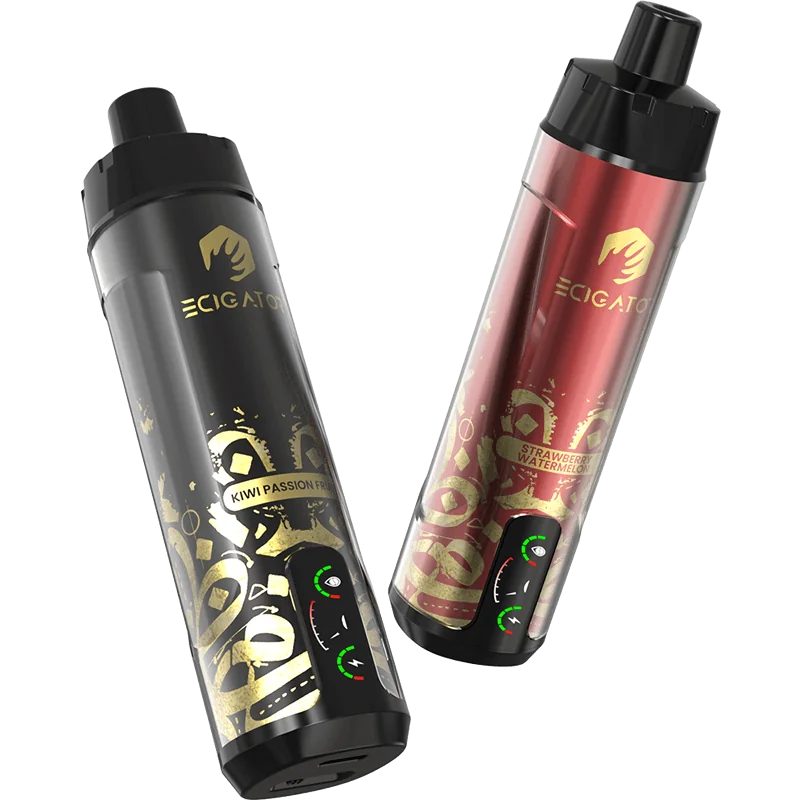
20K DTL Disposable
20K Puffs DTL(Directly to Lung) disposable vape with airflow control and screen.
Selling Vaping Products in Pennsylvania
The sale of vaping products in Pennsylvania is a regulated activity, with specific requirements for licensing, product handling, and sales practices.
Mandatory Retailer and Wholesaler Licensing
All businesses that sell e-cigarettes and other tobacco products in Pennsylvania must obtain the appropriate licenses from the Pennsylvania Department of Revenue. The licensing structure includes:
- Retailer License: $25 per location.
- Vending Machine License: $25 per vending machine per location.
- Wholesaler & Manufacturer License: $1,500 per location.
These licenses must be renewed annually and expire on the last day of February each year. Businesses can apply through the Pennsylvania Online Business Tax Registration system (myPATH).
Sales Practices and Product Requirements
- No Self-Service Displays: Self-service displays of vaping products are prohibited except in licensed tobacco specialty stores.
- Vending Machines: Vending machine sales of e-cigarettes are prohibited in locations accessible to individuals under 21 years of age (or 18 for military/veterans).
- Original Packaging: Products must be sold in their original manufacturer packaging without modification.
Taxation of Vaping Products
Pennsylvania imposes a significant state excise tax on all “Other Tobacco Products,” a category that explicitly includes e-cigarettes, e-liquids (both nicotine and non-nicotine), and vaping devices10,11,13.
The tax rate is **40% of the purchase price** charged to the retailer (i.e., the wholesale price)10,11,12. This tax is paid by the retailer to their supplier/wholesaler, who then remits it to the state, but the cost is typically passed on to the final consumer. Retailers are required to file Other Tobacco Products Tax Returns online via the myPATH system(Part 3 – Taxation).
The Status of Flavored Vaping Products in Pennsylvania
As of 2025, Pennsylvania does not have a statewide ban on the sale of flavored vaping products. However, local jurisdictions have the authority to enact their own flavor restrictions. Philadelphia has done so, restricting the sale of non-tobacco flavored and high-nicotine (over 20 mg/mL) vapor products to adults-only (21+) retail stores.
It is crucial to note that while many flavored products are legal at the state level, they may still be considered unauthorized for sale under federal FDA regulations if they have not received a Premarket Tobacco Product Application (PMTA) marketing order. This creates a complex enforcement environment.

ECIGATOR
Ecigator is one of the well-known vape brands spun off from FM Technology Co., Ltd, it’s an ISO-certified disposable vape manufacturer for OEMs, ODMs, and OBM since 2010. The founder team comes from top firms with more than 10 years of experience in the vaping industry and has devoted thousands of hours to providing users with a better and better experience.
Pending Vape Legislation in Pennsylvania
The most potential change to Pennsylvania’s vaping landscape is House Bill 1425 (HB 1425). This legislation passed the Pennsylvania House in June 2025 and is currently under consideration in the Senate. If enacted, HB 1425 would dramatically alter the market by:
- Establishing an Electronic Nicotine Delivery System (ENDS) Directory: This would create a state-managed list of all vaping products legally permitted for sale, similar to laws passed in states like Virginia and Louisiana.
- Requiring Manufacturer Certification: Manufacturers would need to certify annually that their products either have FDA marketing authorization or meet other specific criteria related to the PMTA process.
- Prohibiting Unlisted Products: The sale of any vaping product not listed in the state directory would be prohibited. Given the FDA’s limited authorizations (mostly for tobacco-flavored products), this would effectively function as a de facto ban on most flavored vapes currently on the market.
- Granting Enforcement Authority: The bill would grant the Pennsylvania Attorney General inspection authority and the power to impose significant penalties, such as fines up to $1,500 per unlisted product per day.
Enforcement and Penalties
Pennsylvania employs a multi-agency approach to enforcement, involving the Department of Health, the Department of Revenue, and the Attorney General’s Office.
- Compliance Checks: The Department of Health conducts compliance checks at tobacco retailers to ensure products are not sold to underage individuals.
- Penalties for Retailers: As per 18 Pa. Cons. Stat. § 6305, retailers face escalating fines for selling to minors, starting from $100-$500 for a first offense and rising to $3,000-$5,000 for a fourth or subsequent offense. License sanctions, including suspension or revocation, can also apply for repeat violations.
- Reporting Violations: Violations can be reported to the Department of Health at [email protected]. For Philadelphia-specific violations, reports can be made by calling 888-99-SMOKE (888-997-6653).
Conclusion:
Pennsylvania’s vaping laws in 2025 create a regulatory environment that is more moderate than some of its northeastern neighbors but is clearly in a state of transition.
The most critical factor shaping the future of vaping in Pennsylvania is the pending House Bill 1425. If this PMTA registry bill becomes law, it will dramatically restrict the variety of products available, effectively creating a statewide ban on most flavored vapes and potentially shuttering many independent vape businesses. For consumers, retailers, and manufacturers, closely monitoring the progress of this legislation is paramount.
- New Zealand Extends Heated Tobacco Tax Cut to 2027 - July 29, 2025
- Spain Pushes for Nationwide Beach Smoking & Vaping Ban - July 29, 2025
- US Smoking Rates Fall as Vaping Rises: 2024 NSDUH Report - July 29, 2025

